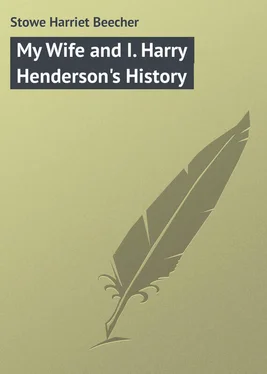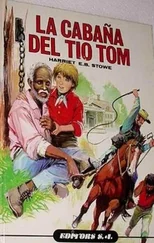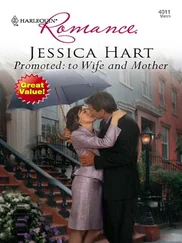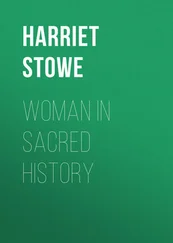Harriet Stowe - My Wife and I. Harry Henderson's History
Здесь есть возможность читать онлайн «Harriet Stowe - My Wife and I. Harry Henderson's History» — ознакомительный отрывок электронной книги совершенно бесплатно, а после прочтения отрывка купить полную версию. В некоторых случаях можно слушать аудио, скачать через торрент в формате fb2 и присутствует краткое содержание. ISBN: , Издательство: Иностранный паблик, Жанр: foreign_prose, foreign_language, на английском языке. Описание произведения, (предисловие) а так же отзывы посетителей доступны на портале библиотеки ЛибКат.
- Название:My Wife and I. Harry Henderson's History
- Автор:
- Издательство:Иностранный паблик
- Жанр:
- Год:неизвестен
- ISBN:http://www.gutenberg.org/ebooks/47874
- Рейтинг книги:5 / 5. Голосов: 1
-
Избранное:Добавить в избранное
- Отзывы:
-
Ваша оценка:
- 100
- 1
- 2
- 3
- 4
- 5
My Wife and I. Harry Henderson's History: краткое содержание, описание и аннотация
Предлагаем к чтению аннотацию, описание, краткое содержание или предисловие (зависит от того, что написал сам автор книги «My Wife and I. Harry Henderson's History»). Если вы не нашли необходимую информацию о книге — напишите в комментариях, мы постараемся отыскать её.
My Wife and I. Harry Henderson's History — читать онлайн ознакомительный отрывок
Ниже представлен текст книги, разбитый по страницам. Система сохранения места последней прочитанной страницы, позволяет с удобством читать онлайн бесплатно книгу «My Wife and I. Harry Henderson's History», без необходимости каждый раз заново искать на чём Вы остановились. Поставьте закладку, и сможете в любой момент перейти на страницу, на которой закончили чтение.
Интервал:
Закладка:
Meanwhile, I have been furnishing a story for the Christian Union , and I chose the subject which is in everybody's mind and mouth, discussed on every platform, ringing from everybody's tongue, and coming home to every man's business and bosom, to wit:
I trust that Miss Anthony and Mrs. Stanton, and all the prophetesses of our day, will remark the humility and propriety of my title. It is not I and My Wife – oh no! It is My Wife and I. What am I, and what is my father's house, that I should go before my wife in anything?
"But why specially for the Christian Union? " says Mr. Chadband. Let us in a spirit of Love inquire.
Is it not evident why, O beloved? Is not that firm in human nature which stands under the title of My Wife and I, the oldest and most venerable form of Christian union on record? Where, I ask, will you find a better one? – a wiser, a stronger, a sweeter, a more universally popular and agreeable one?
To be sure, there have been times and seasons when this ancient and respectable firm has been attacked as a piece of old fogyism, and various substitutes for it proposed. It has been said that "My Wife and I" denoted a selfish, close corporation inconsistent with a general, all-sided diffusive, universal benevolence; that My Wife and I, in a millennial community, had no particular rights in each other more than any of the thousands of the brethren and sisters of the human race. They have said, too, that My Wife and I, instead of an indissoluble unity, were only temporary partners, engaged on time, with the liberty of giving three months' notice, and starting off to a new firm.
It is not thus that we understand the matter.
My Wife and I, as we understand it, is the sign and symbol of more than any earthly partnership or union – of something sacred as religion, indissoluble as the soul, endless as eternity – the symbol chosen by Almighty Love to represent his redeeming, eternal union with the soul of man.
A fountain of eternal youth gushes near the hearth of every household. Each man and woman that have loved truly, have had their romance in life – their poetry in existence.
So I, in giving my history, disclaim all other sources of interest. Look not for trap-doors, or haunted houses, or deadly conspiracies, or murders, or concealed crimes, in this history, for you will not find one. You shall have simply and only the old story – old as the first chapter of Genesis – of Adam stupid, desolate, and lonely without Eve, and how he sought and how he found her.
This much, on mature consideration I hold to be about the sum and substance of all the romances that have ever been written, and so long as there are new Adams and new Eves in each coming generation, it will not want for sympathetic listeners.
So I, Harry Henderson – a plain Yankee boy from the mountains of New Hampshire, and at present citizen of New York – commence my story.
My experiences have three stages.
First, My child-wife, or the experiences of childhood.
Second, My shadow-wife, or the dreamland of the future.
Third, my real wife, where I saw her, how I sought and found her.
In pursuing a story simply and mainly of love and marriage, I am reminded of the saying of a respectable serving man of European experiences, who speaking of his position in a noble family said it was not so much the wages that made it an object as " the things it enabled a gentleman to pick up ." So in our modern days as we have been observing, it is not so much the story, as the things it gives the author a chance to say. The history of a young American man's progress toward matrimony, of course brings him among the most stirring and exciting topics of the day, where all that relates to the joint interests of man and woman has been thrown into the arena as an open question, and in relating our own experiences, we shall take occasion to keep up with the spirit of this discussing age in all these matters.
CHAPTER II.
MY CHILD-WIFE
The Bible says it is not good for man to be alone. This is a truth that has been borne in on my mind, with peculiar force, from the earliest of my recollection. In fact when I was only seven years old I had selected my wife, and asked the paternal consent.
You see, I was an unusually lonesome little fellow, because I belonged to the number of those unlucky waifs who come into this mortal life under circumstances when nobody wants or expects them. My father was a poor country minister in the mountains of New Hampshire with a salary of six hundred dollars, with nine children. I was the tenth. I was not expected; my immediate predecessor was five years of age, and the gossips of the neighborhood had already presented congratulations to my mother on having "done up her work in the forenoon," and being ready to sit down to afternoon leisure.
Her well-worn baby clothes were all given away, the cradle was peaceably consigned to the garret, and my mother was now regarded as without excuse if she did not preside at the weekly prayer-meeting, the monthly Maternal Association, and the Missionary meeting, and perform besides regular pastoral visitations among the good wives of her parish.
No one, of course, ever thought of voting her any little extra salary on account of these public duties which absorbed so much time and attention from her perplexing domestic cares – rendered still more severe and onerous by my father's limited salary. My father's six hundred dollars, however, was considered by the farmers of the vicinity as being a princely income, which accounted satisfactorily for everything, and had he not been considered by them as "about the smartest man in the State," they could not have gone up to such a figure. My mother was one of those gentle, soft-spoken, quiet little women who, like oil, permeate every crack and joint of life with smoothness.
With a noiseless step, an almost shadowy movement, her hand and eye were every where. Her house was a miracle of neatness and order – her children of all ages and sizes under her perfect control, and the accumulations of labor of all descriptions which beset a great family where there are no servants, all melted away under her hands as if by enchantment.
She had a divine magic too, that mother of mine; if it be magic to commune daily with the supernatural. She had a little room all her own, where on a stand always lay open the great family Bible, and when work pressed hard and children were untoward, when sickness threatened, when the skeins of life were all crossways and tangled, she went quietly to that room, and kneeling over that Bible, took hold of a warm, healing, invisible hand, that made the crooked straight, and the rough places plain.
"Poor Mrs. Henderson – another boy!" said the gossips on the day that I was born. "What a shame! poor woman. Well, I wish her joy!"
But she took me to a warm bosom and bade God bless me! All that God sent to her was treasure. "Who knows," she said cheerily to my father, "this may be our brightest."
"God bless him," said my father, kissing me and my mother, and then he returned to an important treatise which was to reconcile the decrees of God with the free agency of man, and which the event of my entrance into this world had interrupted for some hours. The sermon was a perfect success I am told, and nobody that heard it ever had a moment's further trouble on that subject.
As to me, my outfit for this world was of the scantest-a few yellow flannel petticoats and a few slips run up from some of my older sisters cast off white gowns, were deemed sufficient.
The first child in a family is its poem – it is a sort of nativity play, and we bend before the young stranger, with gifts, "gold, frankincense and myrrh." But the tenth child in a poor family is prose , and gets simply what is due to comfort. There are no superfluities, no fripperies, no idealities about the tenth cradle.
Читать дальшеИнтервал:
Закладка:
Похожие книги на «My Wife and I. Harry Henderson's History»
Представляем Вашему вниманию похожие книги на «My Wife and I. Harry Henderson's History» списком для выбора. Мы отобрали схожую по названию и смыслу литературу в надежде предоставить читателям больше вариантов отыскать новые, интересные, ещё непрочитанные произведения.
Обсуждение, отзывы о книге «My Wife and I. Harry Henderson's History» и просто собственные мнения читателей. Оставьте ваши комментарии, напишите, что Вы думаете о произведении, его смысле или главных героях. Укажите что конкретно понравилось, а что нет, и почему Вы так считаете.












